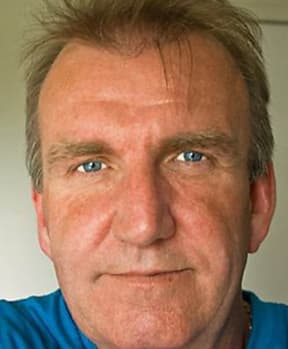The mother of two children murdered by their father refuses to accept the chief coroner's view they may have died even if the agencies involved had followed best practice.

Bradley and Ellen Livingstone Photo: NZ POLICE
Coroner Deborah Marshall yesterday released her findings into the deaths of nine-year-old Bradley Livingstone and his six-year-old sister, Ellen Livingstone.

Edward Livingstone Photo: Supplied
The children were shot dead in their beds by their father, Edward Livingstone, in the Dunedin suburb of St Leonards in January last year. He was found dead with his shotgun next to him.
Judge Marshall confirmed the circumstances of the deaths but found it was still not clear what triggered his actions, and concluded better practice by the agencies involved might not have altered the tragic outcome.
But Anne Stevens, lawyer for their mother Katharine Webb, said she and Ms Webb could not accept that.
"That's probably the most important finding to Katharine and and myself, and the most distressing finding, because that implies there's an inevitability about this that we just can't accept," Ms Stevens told Nine to Noon.
"Inevitability comes with tides and with the sun rising but it doesn't come with human behaviour, in our view.
"As the report makes clear ... these were choices that Mr Livingstone made, choices to murder his children and those choices would be different, in our view, given different factors."
Ms Stevens said three main factors were overlooked in the build-up to the murders: Mr Livingstone gave his children bullet casings as a present, his previous convictions were not considered and a prolonged rape of his wife.
"So when the coroner finds that the following recommendations and comments are not intended to suggest that best practice by all the agencies involved would have altered the tragic outcome, we just can't accept that, because how could it be best practice if two children would still be murdered by their father, two children who had a protection order," she said.
Best practice should have occurred and could have altered the outcome "because otherwise how can it be best practice - it would only be mediocre practice".
Ms Stevens said Ms Webb did not make a rape complaint against Mr Livingstone because her priority was to protect her children.
However, he admitted the rape to others and police should have interviewed him about it, and could have charged him without Ms Webb having to lay the complaint, she said.
"... she didn't want to make a complaint of rape but that has to be held up against the fact that this is a woman who had been subjected to psychological abuse for a prolonged period of time - years - and so had entered into an arrangement of appeasement, doing whatever it was that would keep the peace, would keep things safe for the children, and her priority at this time was to get the children away and to get away from Mr Livingstone, so the rape, although awful, to Katharine at that time was actually one of the least of her problems."
Instead, her priority had been to get herself and her children away from Livingstone.
Livingstone had breached his protection order twice before he went to his family's home and shot the children dead, and family violence campaigners said the findings were a reminder there was more work to be done.
Barrister and legal commentator Catriona MacLennan said she was frustrated at the lack of progress the coroner's report showed.
"The fact that the coroner's first recommendation is that police should institute training to reinforce the message that any incident of family violence must be treated seriously.
"It's just quite unbelievable that that message still needs to be given to police."
The police said they had accepted the inquest findings, and had made a raft of changes, including setting up local specialist teams for such cases.
Ms MacLennan said there was still a need for an attitude shift, not just by police, but everyone.
"We look at when Mr Livingstone was before the court for the breach of protection order and the judge was weighing up the impact of a conviction on his employment and it seems to be that the potential impact on his employment outweighed the seriousness of the domestic violence issues."
The Ministry of Social Development said it, too, was looking at how to improve its practices, and said work was underway for a new system for inter-agency information sharing.
Women's Refuge chief executive Ang Jury said she would welcome more work in this area.
"I think communication is improving, I think we've still got a way to go, but I think there's a tendency for us, for all agencies involved, to be working from their particular perspective, which sometimes isn't as helpful as it could be."
Dunedin's family violence response co-ordinator Rob Thomson said the responsibility for preventing domestic violence could not lie solely with police and agencies.
"Until we come to the next case and people say what's wrong with protection orders, what's wrong with our system, people are asking the wrong question, they should be asking, what am I going to do to ensure this event never happens again?"
Dr Thomson said people needed take it upon themselves to help protect those around them from violence.




